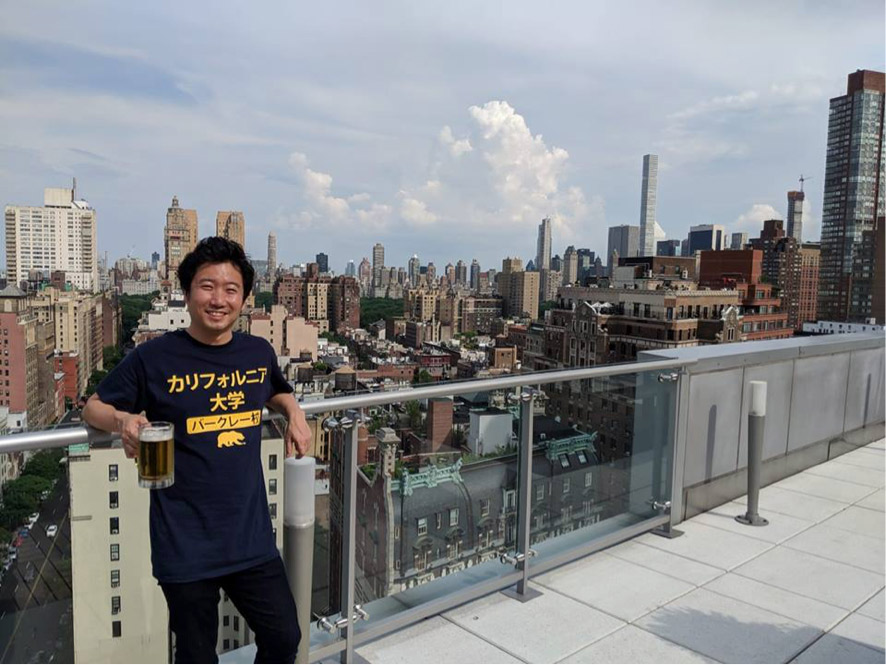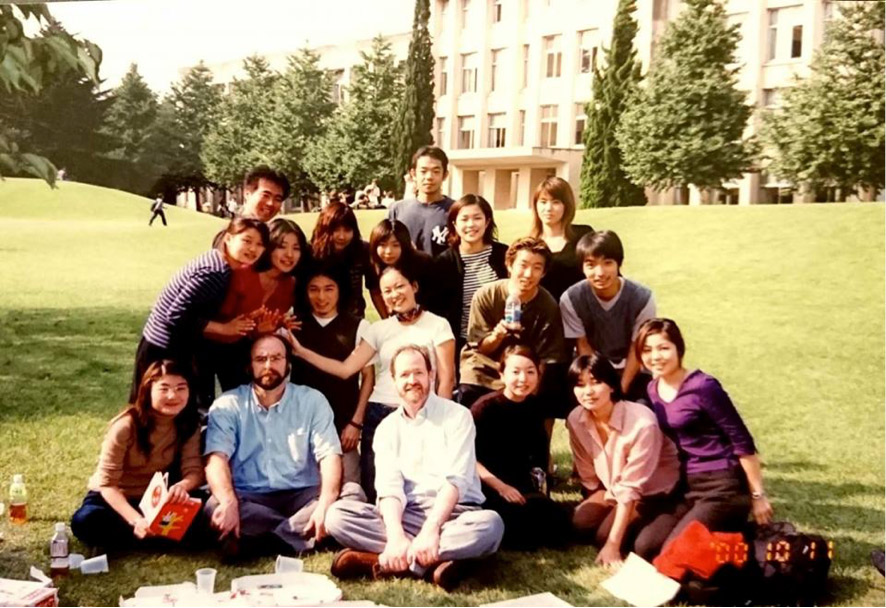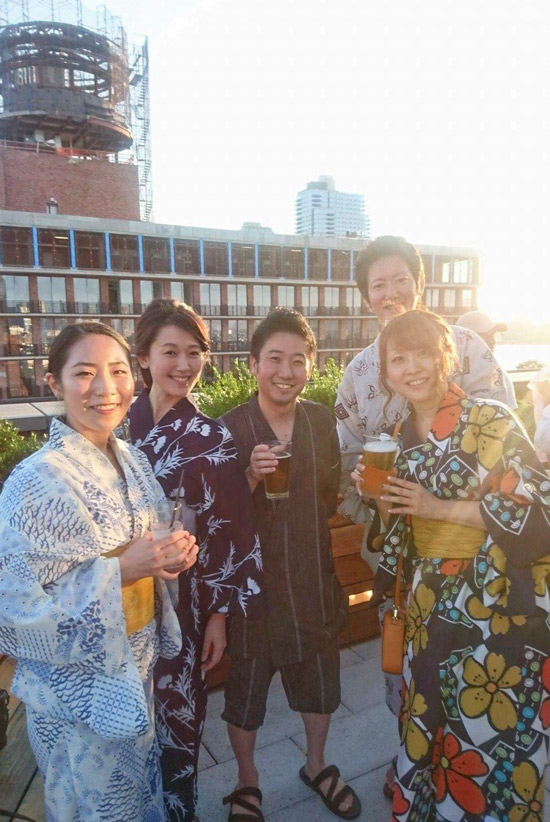Alumni Stories No.10 – Mr. Atsushi Suzuki

Mr. Atsushi Suzuki, a 2004 graduate, was transferred to New York in September 2014. He regularly attends events hosted by the Alumni Association NY Chapter, and kindly cooperated with JICUF’s summer program for undergraduate students, Global Link New York, in 2017. We asked Atsushi about his time at ICU and how it has impacted his life.
Atsushi Suzuki
ICU’s campus atmosphere – the relaxed flow of time, the ease of chatting with anyone as equals, every breath I took of the air – has stayed with me all these years. Even if they are from a different generation, I feel an immediate connection with fellow alumni who breathed that same air on campus; a mild sense of unity among those who share this experience. I’ve always been comfortable mingling with ICU alumni.
The first time I visited ICU was when I joined the campus tour as a high school student. I got off the bus at the main gate by mistake, and I walked the kassoro to the center of campus. I remember being overwhelmed by the bright summer sun beaming through the tree leaves, and the vastness of the campus. ICU’s brochure cut right into the meaning of liberal arts and academics. While many universities made an effort to push a fun student life, ICU stood out by treating students as equal members of the community.
After entering ICU, I was inspired by peers who were unlike any person I’d met until then, like the Christian friend who could sing hymns with ease, and those who graduated from international schools and spoke a mix of English and Japanese. There were returnees from all over the world. I had studied in the U.S. for one year in high school and was completely Americanized, but getting to know these friends expanded my understanding of the world. (At the time, my hair was dyed red, and I went to class wearing baggy pants and a loose-fitting T-shirt with basketball shoes.) In my ELP class, there were many students who had spent a part of their childhood or high school days abroad. I was surrounded by friends who had similar experiences and senses, and I felt comfortable and secure.

Academically, Professor Steele’s Japanese history class was particularly memorable. The fact that an American professor taught Japanese history in English was very “ICU.” His class enabled me to relativize what I’d learnt from textbooks, and I received the message that the purpose of academics is not just to acquire knowledge but to free oneself from their own prejudice. At ICU, people often talk about critical thinking. Through classes like this, I acquired the habit of questioning whether my thoughts were valid. (On the other hand, I felt the need to form my own opinions, and this led me to pursue graduate studies. I am still working on this process.)

In my junior year, I studied abroad in UC Berkeley for a year. It was the year when the U.S. embarked on the Iraq War, and even in Berkeley, which is known as a liberal stronghold, I felt that the U.S. society was being driven by patriotism. In classes, there was a lively discussion that globalization led by multinational corporations and free trade were destroying the lives of people in developing countries. On the other hand, my roommate from a developing country said that it was necessary for these countries to attract Foreign Direct Investment to create jobs and continue to develop. The awareness that I gained then has remained through graduate school and my career.
I currently work as a researcher at the Japan External Trade Organization (JETRO) New York Office. I research U.S. policies which are likely to affect the U.S. operations of Japanese corporations, and explain these policies to them. There have been a lot of new developments under the Trump administration, and I feel grateful for being able to work between the U.S. and Japan at such an important time.
After graduating from university, I’ve pursued my interests freely. I became hooked on rakugo, took an architecture course in a college, visited to numerous libraries and bookstores, and recently started spending more time in art museums. It’s very exciting to feel a connection in a completely new field. This is definitely the effect of ICU’s liberal arts (I realized this as I wrote this essay). In the future, I’d like to continue to live freely with an open mind just as many ICU graduates are.
Thank you for sharing your story, Atsushi, and for continuing to support ICU!



